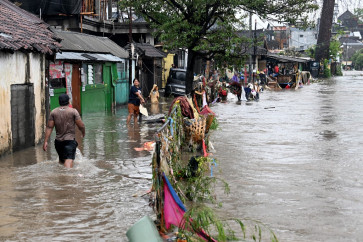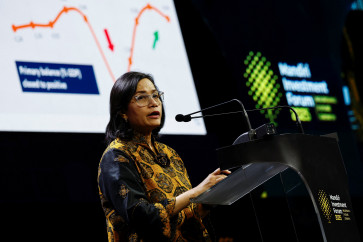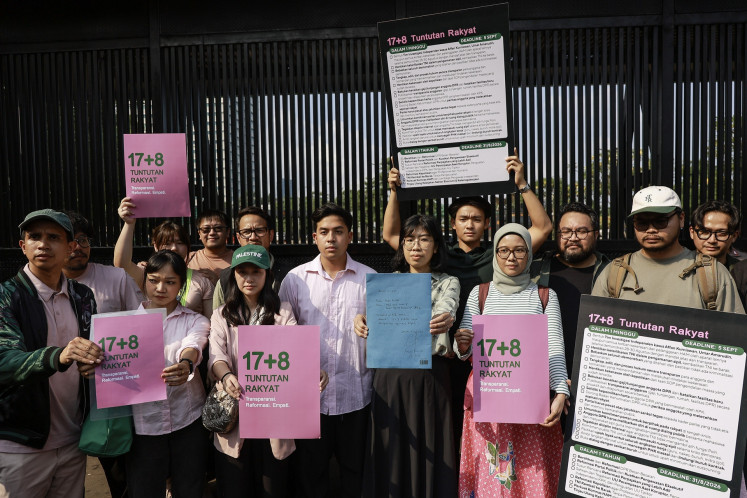Popular Reads
Top Results
Can't find what you're looking for?
View all search resultsPopular Reads
Top Results
Can't find what you're looking for?
View all search resultsSogo eyes 12% sales growth with new online platform
Digital technology has had an adverse impact on brick and mortar stores with many of them either downsizing or closing down for good
Change text size
Gift Premium Articles
to Anyone
D
igital technology has had an adverse impact on brick and mortar stores with many of them either downsizing or closing down for good.
But, that is not the story of the Sogo department store, owned by lifestyle retail giant PT Mitra Adiperkasa (MAP), which remains optimistic about its future business dealings in the country by targeting 12 percent sales growth by the end of the year.
Sogo president director Handaka Santosa, who spoke at a discussion on Tuesday, said the company’s year-on-year (yoy) growth in February reached almost 10 percent.
“Hopefully, [growth] will increase during Ramadhan and Idul Fitri,” Handaka added, referring to the Islamic holiday season when families often buy new clothes.
To support its offline business, Handaka said the retailer had planned to renovate some of its stores in Jakarta this year and launched a program named “O to O” (Online-to-Offline).
It allows customers to shop online and pick up their purchases at a Sogo store of their choice.
Currently, Sogo runs 18 stores in eight cities across Indonesia.
Economist Aviliani, who participated in Tuesday’s discussion, urged offline retailers to adopt an e-commerce platform as the market would be dominated by millennials and members of Generation Z who would make up 60 to 70 percent of consumers by 2030.
“If a retailer has an online platform, its revenue tends to increase,” Aviliani said. “Companies need to [prepare themselves] as the market will totally change.”
She added that retailers should still maintain their offline operations, but had to make them more efficient, such as in terms of space.
The government should also provide better security for e-commerce platforms, including supervising taxpayers, Aviliani said.
“I think the retail industry has to understand consumers’ characteristics.
“First, Indonesians like discounts and gimmicks. Second, they have to review their market strategies to decide which one will survive and which one won’t.”
Several department stores in Jakarta permanently closed their doors at the end of last year, including Lotus and Debenhams, both overseen by MAP.
In October, MAP corporation head Fetty Kwartati said the closures came about because of changes affecting the global retail industry, and that Indonesian consumers were following the millennial shopping trend of choosing specialty over department stores.
Despite conceding that last year was a tough time for Indonesia’s retail industry, Handaka was reluctant to see it as a result of consumer’s low purchasing power.
Aviliani said the closure of offline retailers was largely due to tight competition among themselves.
“Retailers have to keep improving each year, [such as by] opening new branches and upgrading their strategy,” she said, adding that surviving companies should come up with better strategies than their competitors.










